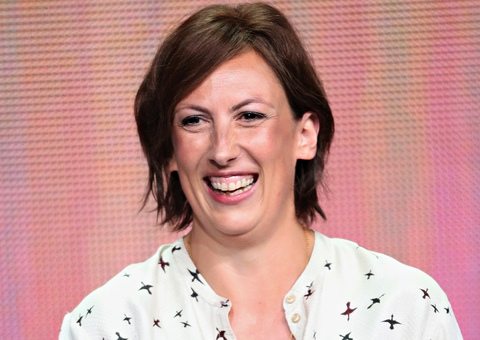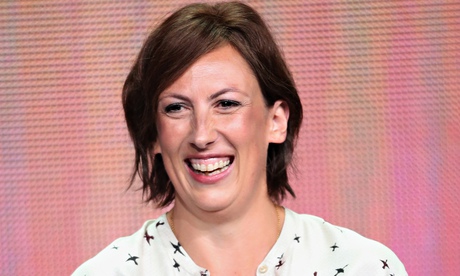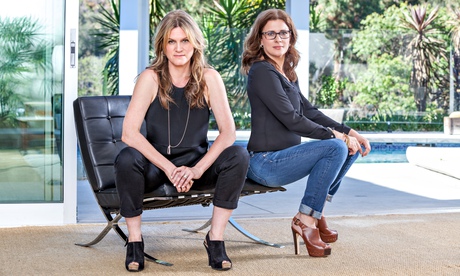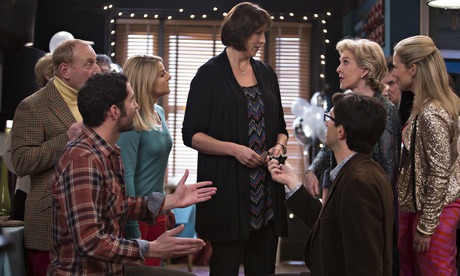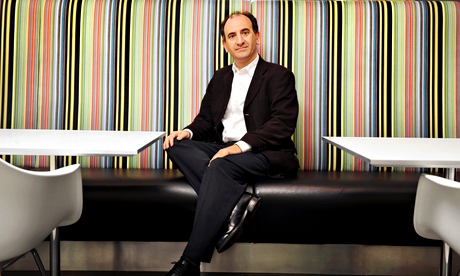Charlotte Moore is in charge of the country’s most popular TV channel, BBC1, watched by more than 40 million viewers each week.
It is also the most scrutinised, criticised in a report by the BBC Trust last month which accused it of “playing safe” and demanded more “creative risks”. Whether the trustees will regard a Generation Game revival as a suitable response remains to be seen.
Moore confirms for the first time that she will revive the 43-year-old gameshow with comedy star Miranda Hart in the presenting role previously filled by Bruce Forsyth, Larry Grayson and Jim Davidson.
Her biggest play to date since taking the controller’s job just over a year ago, it is one of a number of new shows on Moore’s conveyor belt including a BBC1 debut for Harry Hill, a Peter Bowker adaptation of John Lanchester’s novel Capital, a science strand called The Truth About and a new Saturday night entertainment format. On a mission to identify shows that will define the “new modern BBC1 for the future”, Moore wants to “push the boundaries” – a favourite phrase – “but within the mainstream, not by doing programmes that nobody wants to watch. It’s about engaging our audience with the things that matter to them.”
She points to Sally Wainwright’s BBC1 drama Happy Valley, which will return for a second series, as an example and an inspiration. “I don’t think there had been a drama like that on BBC1 before,” says Moore. “It was hugely complex, very visceral and surprised at every turn. It gave us huge confidence that when you push at the boundaries, the audience will come with you.” Moore will hope the same can be said of The Generation Game, BBC1’s latest attempt to find a Saturday night hit to sit alongside Strictly Come Dancing and The Voice.
It will stay true to the show’s history – complete with conveyor belt and cuddly toy – while updating it for a modern audience, says Moore. “Miranda will bring a very different flavour to it. Miranda is brilliant at engaging with people, she loves that interaction. She’ll be brilliant.”
Hart’s BBC1 comedy Miranda will be back, as will the channel’s other big sitcom, Mrs Brown’s Boys. But fans hoping for full series will be disappointed, each returning only for a two-part special.
To the charge that The Generation Game is hardly a creative risk, Moore says: “I promise you it won’t be predictable. It will feel absolutely rooted in the present day. Television is always reinventing things, every show has a great grandparent that existed once. We all swim in the same pond.”
As if to prove her point, a few days later ITV confirms the return of Sunday Night at the London Palladium.
A new Saturday night gameshow, Prized Apart, will put contestants through “mind and body breaking challenges” on location while their familes compete in the studio to keep them in the game to face ever more difficult tasks. Moore says it “feels scarily different but in a really exciting way”. Another Saturday night gameshow, Reflex, presented by Shane Richie, has been axed.
Moore wants more moments when BBC1 becomes “part of the national conversation”, as it does with Strictly Come Dancing and now The Great British Bake Off, recently transferred from BBC2 to BBC1. Two other BBC2 stars will also make the switch (although not exclusively), Brian Cox and The Choir’s Gareth Malone.
Harry Hill, who gave up ITV’s TV Burp two years ago, will also make his BBC1 debut in a scripted comedy. Last year’s Harry Hill Movie was one to forget, but Moore describes him as “one of the great comic talents of British television”.
“Everyone knows it’s a big challenge to find the next big hit,” she says. “There’s no science to it. You have to go with your gut.”
The BBC’s former documentaries chief began her career making films about disappearing tribes, cannibals and stolen art.
After making Channel 4’s Lagos Airport and BBC1’s Living with Cancer – the subject of another of her new BBC1 commissions – she became head of documentaries at independent producer IWC Media where her credits included Stephen Fry’s Secret Life of the Manic Depressive, for BBC2.
She commissioned BBC documentaries ranging from 7/7: One Day in London and Terry Pratchett: Choosing to Die to Inside Claridges and Lambing Live, but unusually perhaps for a BBC1 controller she came to the job with no direct experience of “shiny floor” entertainment, comedy or drama.
“At the end, it’s all about storytelling,” says Moore. “How do you hold an audience, how do you create jeopardy, how do you create those moments that everybody wants to talk about the next day. Authenticity runs through everything we are trying to do.”
When her appointment was announced last year, BBC director general Tony Hall described it as “very critical”, as her tenure coincides with the run-up to the corporation’s charter renewal, and new licence fee settlement, by the end of 2016. A strong BBC1 equates to a strong BBC.
Moore also has a corporation-wide role on diversity, another of Hall’s missions, working closely with the recently appointed diversity champion Deena Saeed, who reports into her. Moore says the BBC is in a “very good place” as regards putting women on screen, pointing to Claudia Winkleman and Tess Daly on Strictly, Tumble’s Alex Jones, natural history presenter Lucy Cook and Mel Giedroyc and Sue Perkins on Bake Off.
But on the wider issue of diversity she says “absolutely more needs to be done”.
“It’s not that we haven’t all tried our hardest to do it, but it is shocking when you look at on and off screen that we still haven’t reached the [same] proportions as in society,” she says.
“My key thing is we do it sustainably and not in a ticking box way, because it’s important you find the very best people to do the show whether it’s behind the camera or in front.”
Moore rejects Lenny Henry’s suggestion that part of the licence fee should be ringfenced for black, Asian and minority ethnic (BAME) productions.
“I don’t think quotas or BAME productions is the way to look at it. I want diversity in the mainstream, in the big shows. It’s great seeing Anita Rani on Countryfile and Sam Anderson in Doctor Who. I am surprised we still haven’t made the headway that I thought we would have made.”
Concerned that BBC1 is losing young and ethnic minority viewers – the average age of its audience has grown to 59 from 56 three years ago – the BBC Trust criticised the channel for being risk-averse and relying on too few aged shows, such as EastEnders, Holby City and Antiques Roadshow.
“Some of what they say I don’t recognise as being the BBC1 that I know,” counters Moore. Apart from Waterloo Road, the school drama which she axed, none of the BBC’s long-runners are going to end any time soon.
“These are much-loved shows that we continually refresh and bring some of our most diverse audiences,” says Moore. “Casualty is a fantastic place to play out a difficult issue, whether it’s domestic violence or mental health, on a Saturday night.”
Another criticism in the BBC Trust report was that BBC1 comedies such as Miranda were too middle class. A “red herring”, says Moore. “Mrs Brown’s Boys and Miranda bring big broad audiences to BBC1. Miranda’s character is a fish out of water, the odd one out, and we all recognise that, whatever class you are from.”
The bawdy Mrs Brown’s Boys, says Moore, is “laugh-out-loud funny. We are there to push the boundaries. I don’t want to strait-jacket what we think is funny.”
Coming next is the return of Doctor Who, with Peter Capaldi filling the lead role, followed by the Christmas 2015 return of BBC1’s other blockbuster drama, Sherlock. “Sherlock has become part of the BBC1 story but when it began it was hugely risk-taking,” argues Moore.
Capaldi, she says, is “utterly convincing” as the Time Lord. “He’s very witty but he’s got this depth and intensity, the wisdom of years of time travel,” she adds. “BBC1 is all about cherishing these much-loved programmes and making sure they feel modern and in touch with the audience, and right at the top of their game.”
Charlotte Moore is appearing at the Guardian Edinburgh International Television Festival on Friday 22 August in a Meet The Controller session. The festival runs from August 21-23. Tickets and more info at www.geitf.co.uk. The interactive Edinburgh TV Festival app is also available to download now
Curriculum vitae
Age 46
Education Wycombe Abbey school, Bristol University
Career 2002 series producer, later head of documentaries at Ideal World Productions then director of contemporary factual 2006 commissioning executive, documentaries, BBC 2009 commissioning editor, documentaries 2012 additional role, commissioning editor for knowledge, BBC3 2013 acting controller, BBC daytime TV and acting controller, BBC1 then controller, BBC1


